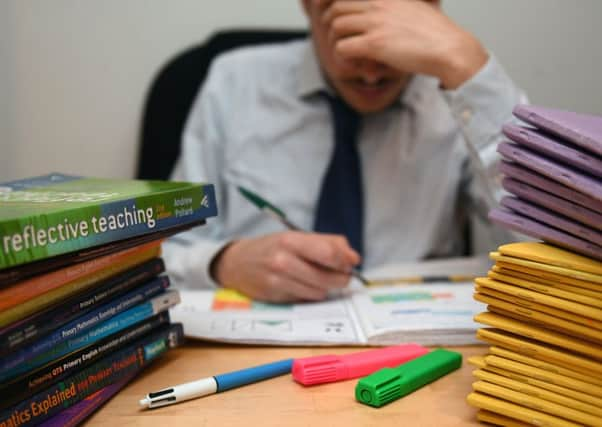Jayne Dowle: Needy families are being pushed unfairly into abyss by austerity cuts – the view from Barnsley


According to a new report by the IPPR North think-tank, spending on support for those with the most complex Special Educational Needs and Disabilities (SEND) has fallen by as much as 24 per cent over the last five years in our region.
Advertisement
Hide AdAdvertisement
Hide AdCuts to education and local government budgets are pushing families on the brink even further into the abyss.
I see some of these families every day. And their plight can bring tears to my eyes. Take the other week. As I stood in the queue at my local supermarket, a family in front of me was attempting to negotiate the self-service till.
There was a father, perhaps in his early thirties, who clearly had a learning disability of his own as he was struggling to communicate. There was a mother, who was holding onto a battered buggy containing not one, but three babies and toddlers all sat on top of each other.
And then there was a young girl of maybe 13, the same age as my daughter, who looked to be the most capable member of this sorry crew. And three little boys, so woebegone and scruffy, they resembled one of those old sepia photographs of workhouse children.
This is South Yorkshire in 2019.
Advertisement
Hide AdAdvertisement
Hide AdAs a student of social and community history, I could have wept at the scenario in front of me. We have come so far. We have technology which makes picking up a bit of shopping a computerised experience. Yet our supposedly-civilised nation can allow families like this to live in such obvious poverty and deprivation.
I have no idea of their true circumstances, but it was clear that they were in trouble. Just looking at the pitiful little boys told me that they were finding it difficult to focus on where they were.
As I walked back to the car, deep in thought, I tried to imagine what some of their special needs might be; attention deficit disorder and sight and hearing difficulties (given the evidence I saw at the till), perhaps dyslexia and/or dyscalculia. And this is not to mention their physical condition. Did these children go to school with breakfast on the table every morning to prepare them for learning and come home to a nutritious cooked tea? Probably not.
I’m not a health professional so it would be spurious of me to speculate further. And I’m not a massive fan of over-interventionist policies either.
Advertisement
Hide AdAdvertisement
Hide AdHowever there is clearly a need for more support and obviously a case for arguing that every child, regardless of background, deserves an equal chance at life.
And school provides this chance, especially if families are so over-burdened that they cannot offer proper support themselves.
However, the IPPR North researchers say that the current funding settlement for schools and colleges is “nowhere near enough” to provide the help that children and young people with SEND need and deserve.
Since 2015, Government funding through the ‘High Needs block’ has increased by eight per cent in the North, but the number of those eligible for support have increased by 39 per cent. Funding per eligible child in Yorkshire fell from £22,696 in 2014-15 to £18,030 in 2018-19.
Advertisement
Hide AdAdvertisement
Hide AdIt means that the teachers and support staff find themselves ever-more stretched to deliver what each pupil and student needs. This has a knock-on effect for more able youngsters, who are suffering because staff are diverted elsewhere. It stands to reason that this will have an effect on overall attainment levels and it contributes to the rise in school exclusions.
And then young people, – who have struggled at school – leave and attempt to enter further education or the workplace without being remotely equipped to do so, in either self-confidence or skills.
A vulnerable teenager who can’t keep up with the demands of college or work is a teenager at risk of falling into trouble – not just criminal behaviour, but substance abuse, mental health problems and unplanned pregnancy. They are also at risk of being exploited by, amongst others, county lines drugs trafficking gangs and sexual abusers. And all because their lives were blighted from the start.
So much for Theresa May’s promise to tackle social injustice. While Brexit has unravelled in front of her, too many children and young people have been left behind.
Advertisement
Hide AdAdvertisement
Hide AdI know that she has much on her plate, but if she really wants to tackle the causes of knife crime and other forms of dangerous anti-social behaviour, she might ask Ministers to look more closely at some of the root causes, instead of putting the onus on teachers and nurses to be held responsible.
And she might just find that every penny spent on helping a child to maximise their life chances – where ever they live – is a penny well-invested.